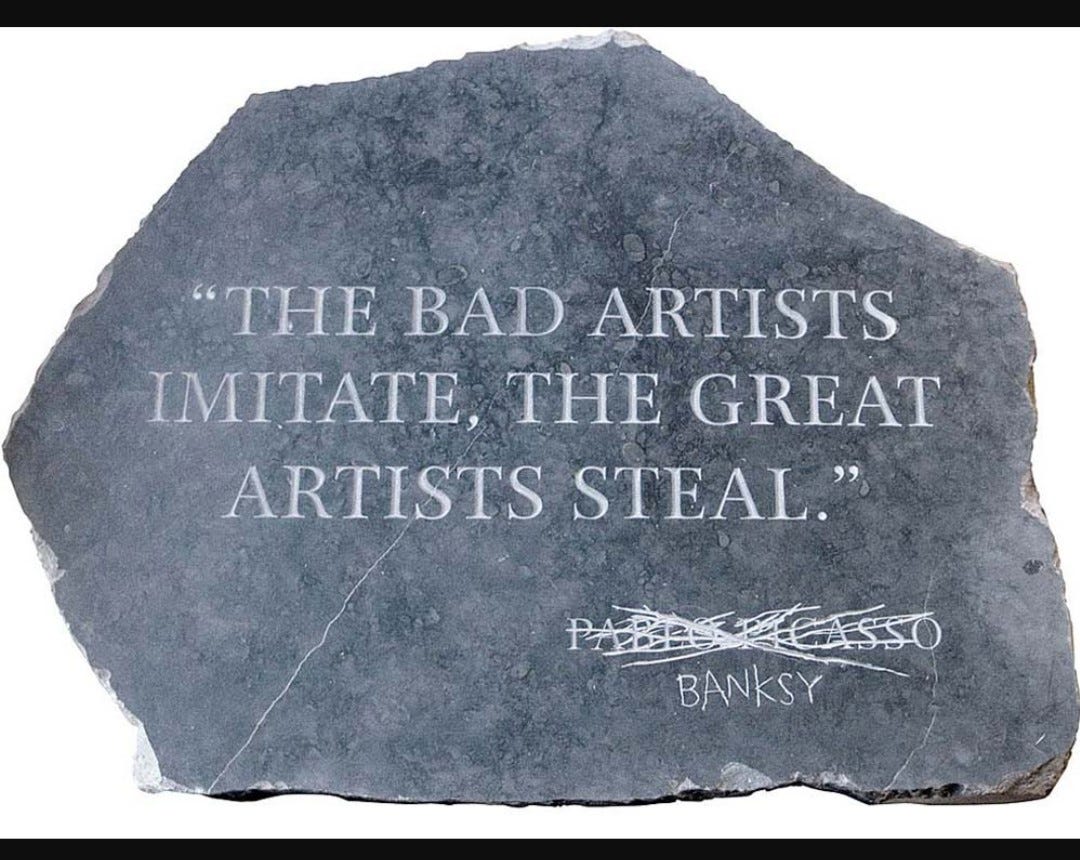Do great artists really steal?
original thoughts are possible, right?
Ten years ago, almost to the day, I was featured in a blog called Great Writers Steal, which was a brilliant site that dissected some aspects of craft from a short story I wrote about a dog. I was es…




